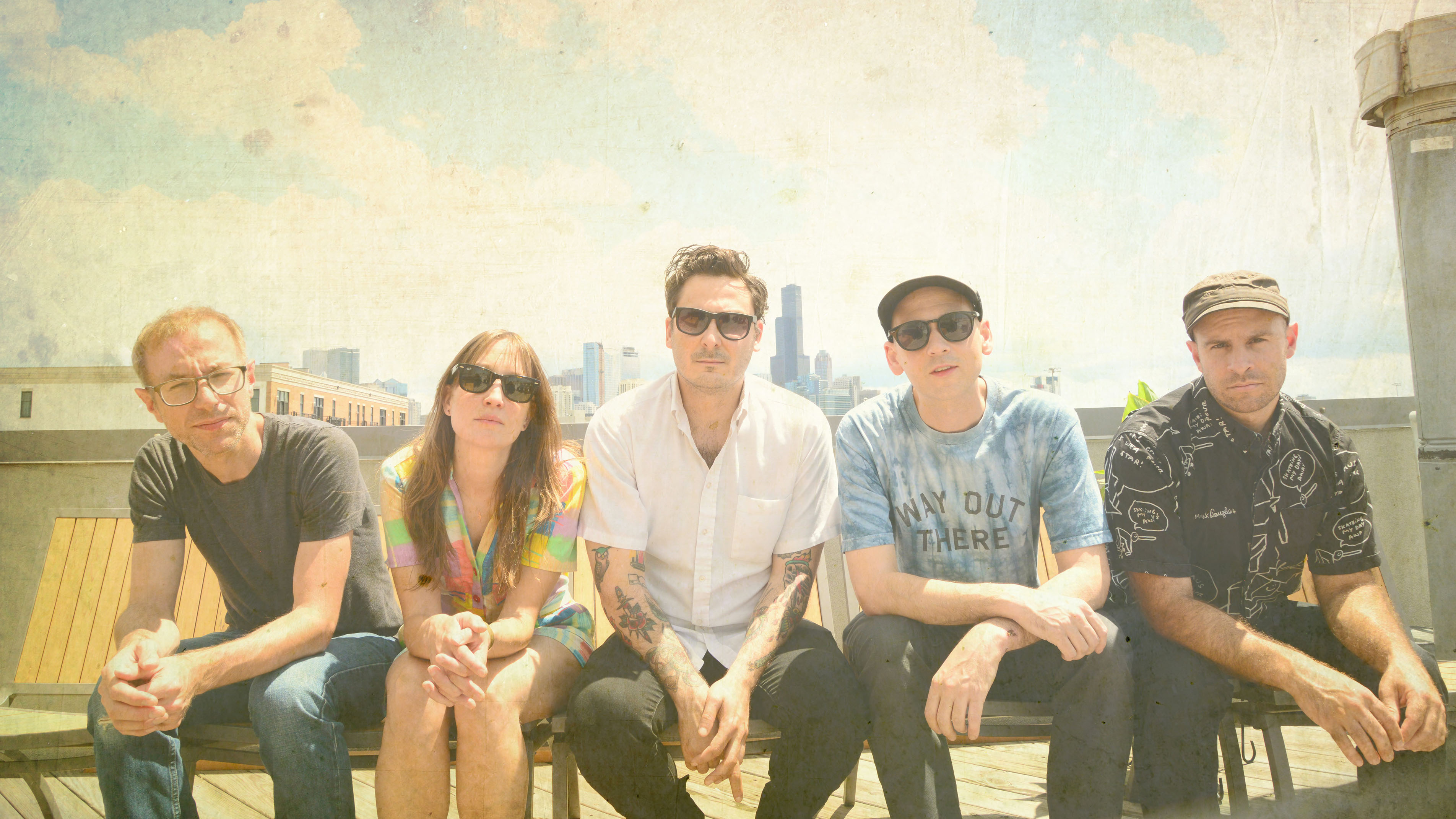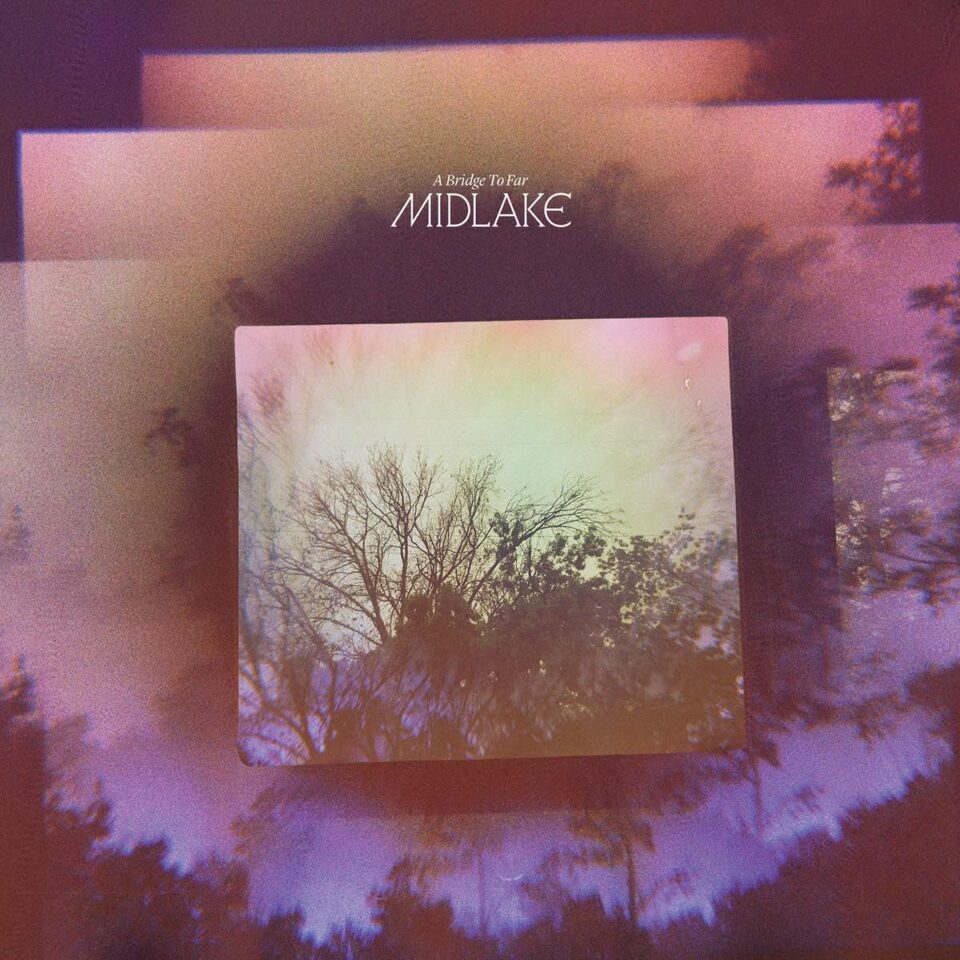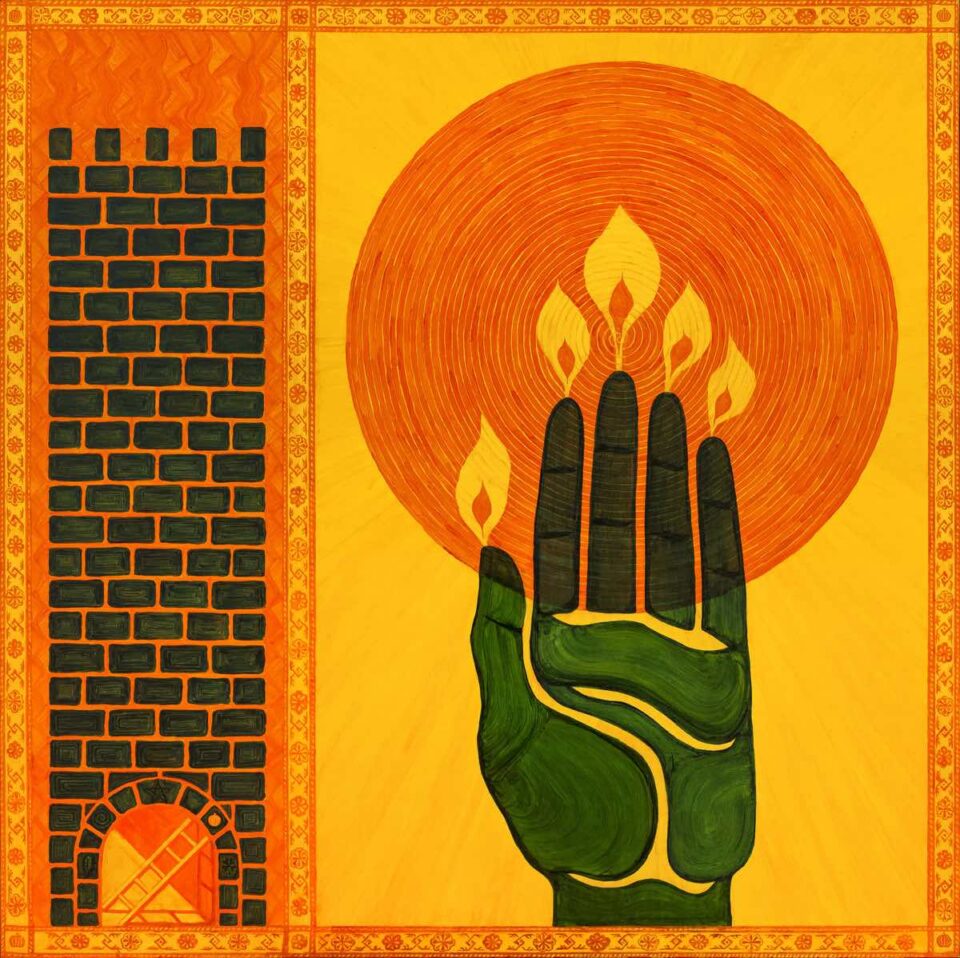For most bands, going six years between records isn’t out of the question. For Chicago indie rockers Joan of Arc, it’s an eternity. The long-running project led by Tim Kinsella released fourteen albums in fourteen years before stepping back following 2011’s Life Like, but the writer kept himself busy: in addition to releasing a handful of limited-run Joan of Arc records and touring with the band, he wrote a pair of novels—2011’s The Karaoke Singer’s Guide to Self-Defense and 2014’s Let Go and Go On and On—and re-formed Owls with his brother Mike (who also recently re-formed his own seminal group, American Football).
Now, he’s picked up the sword once more. In January, Joan of Arc will release He’s Got the Whole This Land is Your Land in His Hands, and this morning we’re premiering the video for album cut “Stranged That Egg Yolk,” which finds Mike Kinsella awakening—appropriately enough—from a long cryogenic sleep. Check it out below.
Tim also took a moment to answer a few of our questions about the return of Joan of Arc, how he channels his creative energy, and how writing music compares to writing a novel.
You put records out Joan of Arc records at a prodigious clip for fourteen years. What led to the break here? What were you up to during that time off?
This break between records actually happened because we were busier than ever, expanding the possibilities of what it meant to us to be a band beyond the standard recording and touring cycle. We did a three-year collaboration with the performance art group Every house has a door and wrote multiple soundtracks to be performed live and performance installations—a few projects in a row were really extended pieces of music, sometimes over righty minutes long. And I released a subscription-only box set of five albums: mostly solo, but one was a techno record by JOA’s 1999 lineup. And we toured so much that we did decide to take 2014 off, but Owls reformed and recorded a new album and toured that year. And I wrote an epic new novel—the first draft was 200,000 words—about the creation of the CIA and the Texas-Saudi oil connection. So it never felt like a break.
Certainly you have a ton of creative energy. Was it difficult to contain without the project?
See above. The break between JOA records was because the creative energy couldn’t be contained. It’s never been my ambition to be creative. I don’t have a wife or kids or anything like that, so there’s very little pressure for me to make any more money than just what I need to feed and house myself. My days are very tightly scheduled and I switch gears between projects a couple times a day. I don’t socialize or see people much except for collaborating, so it’s just what I do. It’s how I am by myself, and how I am as a friend.
Joan of Arc has been a largely solo project, and certainly writing a novel is, too. Do you get the same thing from writing a novel that you do from making a record?
JOA is actually a very, very collaborative project. I have been the one constant, but Bobby [Burg] has also been a constant since 2003 and Theo [Katsaounis] since 2008. Jeremy [Boyle], like Sam [Zurick] and Todd [Mattei] and my brother and [third Kinsella brother] Nate—and others to a lesser degree—have all been constant collaborators in that they come and go as they please, when schedules and creative energies allow. Even our newest member, Melina [Ausikaitis], who never played an instrument before joining us around 2011, definitely has an equal say in all matters. There have been records in the past where I’ve brought in guitar riffs and vocal melodies that determine the general shape of things, but that hasn’t been the case at all the last few years. Every element, no matter who is actually executing it at that moment, is very much a group decision. And on the new record, because of the recording process we conceptualized before getting into it, we literally don’t know half the time who is making what sound.
“The break between Joan of Arc records was because the creative energy couldn’t be contained.”
I have always had parallel practices of working on stuff solitary and collaborating. They are very different. Writing solo songs or making computer music might be more like writing a novel than making a record with the group is. But even those are a lot different. The books happen because I really enjoy sitting by myself in silence for extended periods, pushing my concentration to the point of mental and emotional fatigue. The records happen because I really enjoy hanging out with my best friends. We make each other laugh a lot and we challenge each other, but in the end language could never contain or encapsulate our combined imaginations. It’d be boring for everyone if we released transcripts of our hangouts, so songs happen. They more accurately capture the energy anyways.
I once heard a distiller say that all of their whiskies are made from the same mash bill, and that they only become different whiskies in the barrel—which is to say that there’s no scientific formula for one whiskey and a separate one for another, he simply tastes one and knows it’s this particular name. When you’re working on music, how do you know whether a song is a Joan of Arc song and not another project? Do you set out to write “Joan of Arc” music?
It’s the exact opposite of that distiller. It’s all 100% determined by the process. Joan of Arc—as a group—writes Joan of Arc songs. Owls—as a group—writes Owls songs. Me by myself writes me by myself songs. In our twenty years as a band—with Owls, Make Believe, Friend/Enemy, and everyone else’s bands all running parallel the whole time—that has literally never once been an issue. One song, “Fogbow,” was recorded by both Joan of Arc and Love of Everything, and that was a very intentional gesture to highlight our different approaches to a co-written song.
Did you feel any pressure to live up to the idea of “Joan of Arc,” to make music that’s of a thread with your body of work? Given the variety of the catalog, I’m guessing that’s not much of a concern, but you only get one chance to reintroduce yourself, as they say.
Mm, nah. I feel like our ultimate mission—and maybe the ultimate ambition of all art in any discipline (is that true?)—is to expand people’s sense of what’s permissible. But that’s more a matter of responsible citizenry than an artistic vision. That’s why something like punk rock was liberating in its historical moment but now often feels stale and conservative; it’s not expanding anything. And that’s why genre exercises and folk art in any medium seem hokey. The life of a thing is in its expansion, its growth and its change. Millions of square kids in their dorms are writing more imaginative music this month than they were last month because of this new Bon Iver record. That’s a real contribution to society, you know? These kids now think all kinds of sounds and sonic relationships are OK in a way that they didn’t last month. That changes people.
And it’s never interested me to try to be an aesthetically taut band that’s easy to recognize and digest. I am motivated only by being the best version of me, true to myself as I can be, while allowing that same space to my friends who are using the same vehicle to do the same for themselves. You know? We all get together and each push against the limitations of our own generosity and then these things emerge that none of us in a million lifetimes could have ever imagined on our own. And that’s what we aim to sound like. FL









